"Apo" is what they call their elders. This is Apo Tomas, he's the infamous view point Apo and have graced some photography and travel magazines. He's now at least 80 and is partially blind.
From my previous post on a trip to Banaue, I realized that the rapid modernization of the world have a negative effect to our indigenous culture. Our future generation would be lucky to see this culture in person. I only saw a handful of the Ifugaos practicing the old ways, and these were 80 year old elders. It would be a shame if these traditions can't be preserved.
So this is my goal. In my own way, I will try to, as many as I can, seek out and take an image of indigenous Filipino people from all around the country, capturing images of their traditions and old ways, preserving them for future generations. I started from the north of the Philippines, Banaue.
I was back in Banaue 2 weeks after my first trip. This time around, I took a public bus that will travel 8hrs to Banaue. I didn't go to Batad, and endure the long trek, and instead went to other smaller villages around the town proper such as Tam-An. Here lives a few remaining Ifugaos who still live the old ways.
Sitting underneath his house, this Ifugao man tries his best Ifugao pose for the camera
They were pretty used to tourists visiting their place, peeking in their homes. This was their first time, though, to get photographed with lighting equipment, via softbox, umbrella and a speedlight. They weren't eager to pose, and I don't really want them to, so I just had them stand or sit and just talk to them about their history and what they think about the modern times.
Apo here does not speak any filipino nor english, making it hard to interview her
They said tourism is a source of income now, since their rice harvest from their rice-terraced farms are not enough for their own consumption. With a couple of major storms from the past year, harvest has been few and delayed. What ever the tourists (including myself) gave them is a big help.
Tourists looks on as some kids dance around the bonfire before a traditional Ifugao dance
As their children, and their children's children move out and take jobs from outside their small town, so does their traditions. All that's left are the elders trying to earn a few pesos while showing tourists around and their history. These are a friendly group of people and it was an honor to spend a few days with them.
Apo gave us a smile. She and her family gave us a tour of their rice "terraces" field
My next stop will be in Pampanga/Zambales, looking for the first Filipinos - the Aetas. I hope I can go there this year. This series could take some time, which is something to look forward to. Let me know in the comment if ever you would like to join me in this endeavor, the more the merrier :)

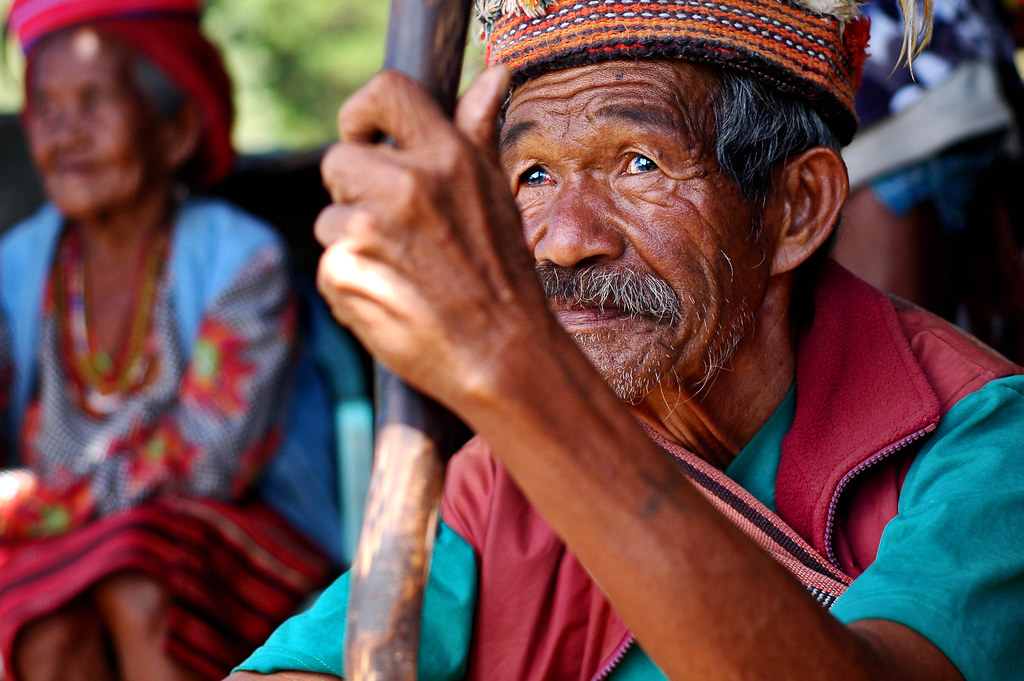
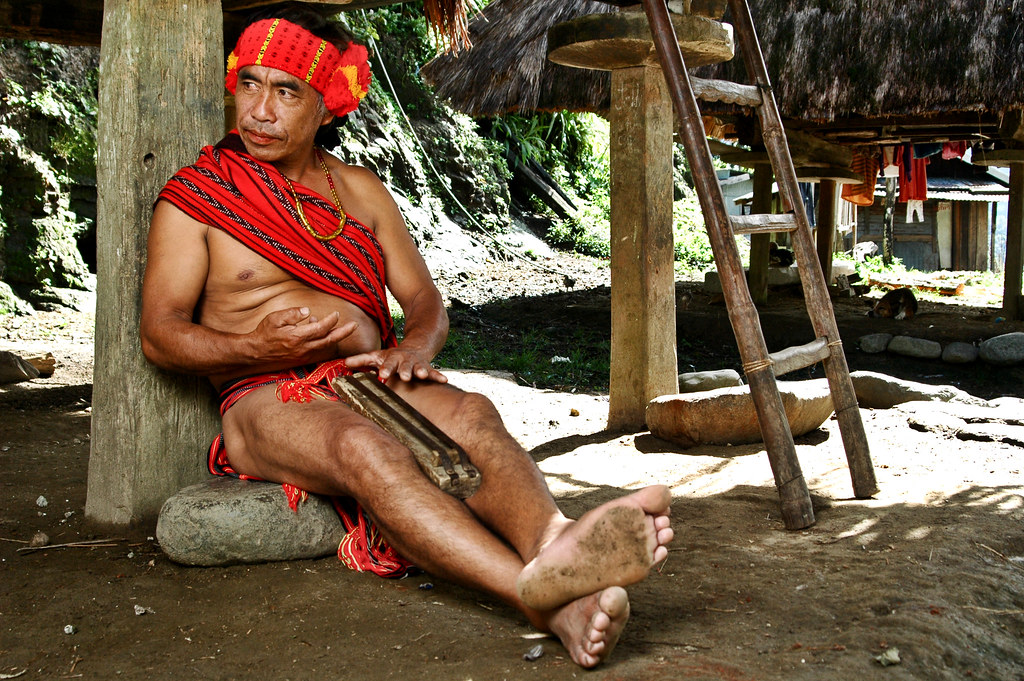
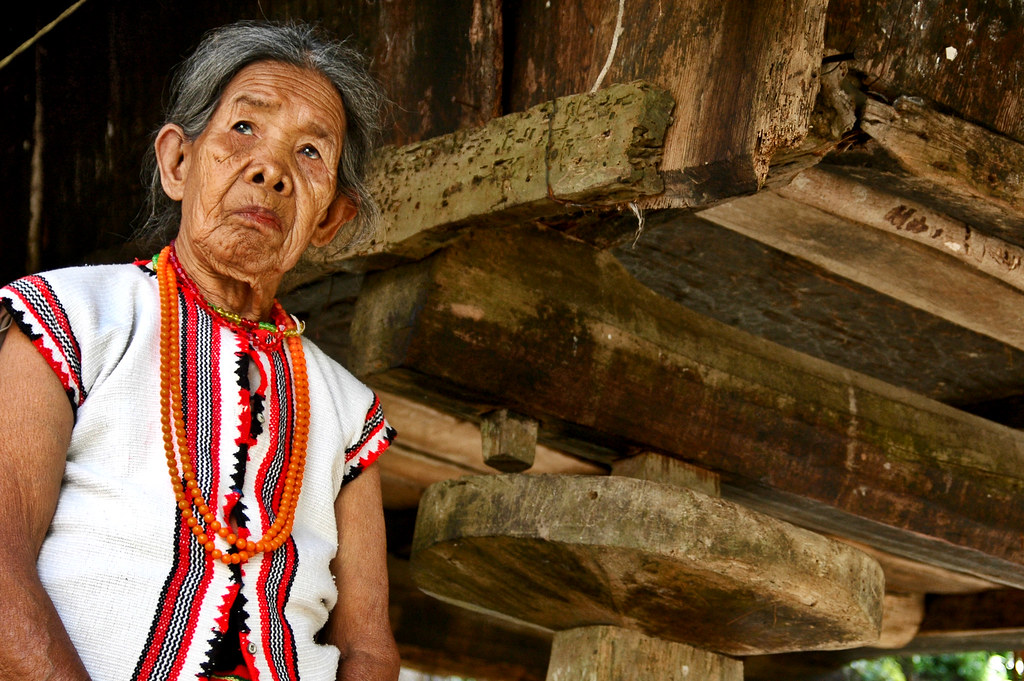
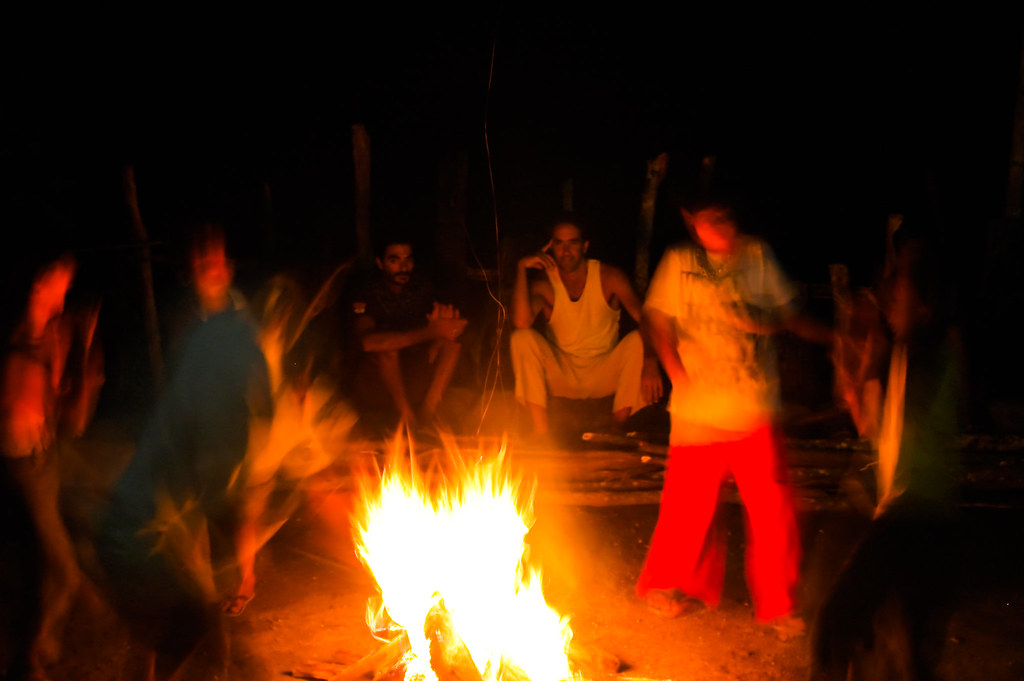
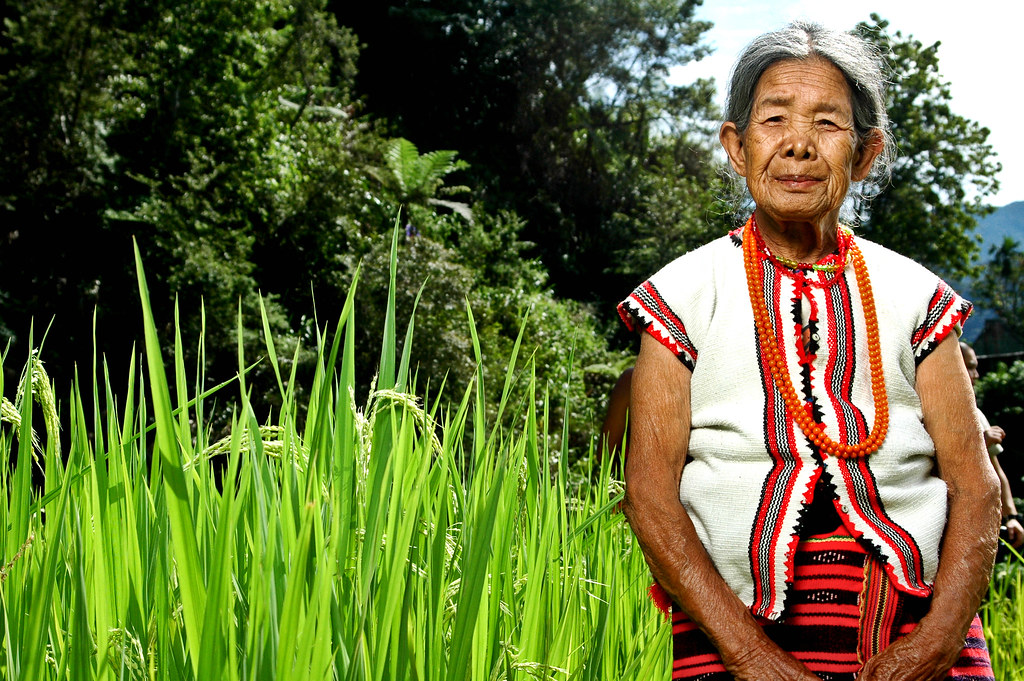
No comments:
Post a Comment